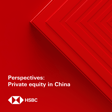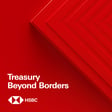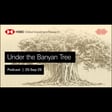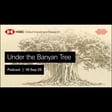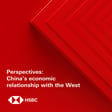Become a Creator today!Start creating today - Share your story with the world!
Start for free
00:00:00
00:00:01

Under the Banyan Tree - Indonesia: burgeoning opportunity
Herald van der Linde is joined by Joy Wang and Prerna Garg for a big picture discussion on one of Asia's best growth and investment stories - Indonesia. They cover topics from demographics, to consumer trends, and how things have changed since Herald lived there in the '90s. Disclaimer: https://www.research.hsbc.com/R/61/ZTl7BS7 Stay connected and access free to view reports and videos from HSBC Global Research follow us on LinkedIn https://www.linkedin.com/feed/hashtag/hsbcresearch/ or click here: https://www.gbm.hsbc.com/insights/global-research.
Hosted on Acast. See acast.com/privacy for more information.
Transcript
Introduction to HSBC Global Viewpoint
00:00:02
Speaker
Welcome to HSBC Global Viewpoint, the podcast series that brings together business leaders and industry experts to explore the latest global insights, trends, and opportunities.
00:00:13
Speaker
Make sure you're subscribed to stay up to date with new episodes.
00:00:16
Speaker
Thanks for listening.
00:00:17
Speaker
And now onto today's show.
00:00:24
Speaker
This is a podcast from HSBC Global Research, available on Apple Podcasts and Spotify.
00:00:30
Speaker
However you're listening, analyst notifications, disclosures and disclaimers must be viewed on the link attached to your media player.
Spotlight on Indonesia: Economic Growth and Demographics
00:00:46
Speaker
Hello from Hong Kong and welcome to Under the Banyan Tree, where we put Asian markets and economics in context.
00:00:52
Speaker
I'm your host, Harold van der Linde, Head of Asia Equity Strategy at HSBC.
00:00:58
Speaker
And today we'll be focusing on a sort of regional up and comer on a number of fronts, economics, commerce, demographics and the markets as well, all part of the vibrant growth story that is Indonesia.
00:01:09
Speaker
Joining me here in the studio is my fellow equity strategist and demographics guru, Prun Agar.
00:01:15
Speaker
And we've also got the pleasure of welcoming Joy Wang, our head of ASEAN equity space in Singapore.
00:01:21
Speaker
Plenty to discuss and I promise I'll try to keep the temple references to an absolute minimum.
00:01:27
Speaker
Let's get the conversation started right here under the banyan tree.
00:01:34
Speaker
Let's start with some customary facts and figures to frame our discussion.
00:01:38
Speaker
Indonesia is a young country, not in the sense that it's not been around, in the sense that 50% of the population are either millennials or Gen Z, and clearly I am definitely not a member of that generation.
00:01:50
Speaker
On the stock market front, it was the hottest IPO market on the planet for almost all of the first half of 2023, with more companies going public in Indonesia than anywhere else, even including Hong Kong or New York.
00:02:04
Speaker
It's also a country that's looking to the future with high urbanization rates and a lot going on in terms of infrastructure.
00:02:11
Speaker
In fact, around 1,800 kilometers of toll roads have been built all across the country since 2014.
Indonesia's Market Dynamics and Young Investors
00:02:17
Speaker
Now it's time to bring in my guest, Joy and Pruna.
00:02:21
Speaker
Ladies, thank you very much for joining me here on the podcast.
00:02:24
Speaker
Thank you for having me, Harul.
00:02:25
Speaker
Thanks for having me, Harul.
00:02:26
Speaker
Fantastic.
00:02:28
Speaker
Joy, we're looking at the Indonesian stock market.
00:02:31
Speaker
So let's take a step back before we delve into some of the technicalities of this market.
00:02:36
Speaker
How does this stock market look like?
00:02:38
Speaker
What are the key stocks and sectors in Indonesia?
00:02:42
Speaker
Sure.
00:02:43
Speaker
I think if you look at the Ingo stock market, this is still very concentrated in a few sectors, especially financials.
00:02:49
Speaker
Banks still account for over a third of the market, and that's followed by consumer sectors and the telco sectors.
00:02:58
Speaker
But I think what's interesting is over the last sort of 10 years, we've seen a doubling of stock listed in Indonesia, and a lot of the new sectors, especially e-commerce, are being introduced, and we've also seen fintech,
00:03:11
Speaker
We've seen battery companies and mining companies.
00:03:15
Speaker
So all these are adding to the vibrancies of the indoor stock markets.
00:03:19
Speaker
And there's a lot of young investors that go into Indonesian equities, right?
00:03:24
Speaker
Yeah, for sure.
00:03:24
Speaker
I think all these new economy sectors are getting the interest from the young populations.
00:03:30
Speaker
And I think that's also helping the liquidity of the market, which puts it now at second or third in the ASEAN market right after Thailand.
Indonesian Consumer Insights and Workforce Trends
00:03:39
Speaker
Good, good.
00:03:39
Speaker
So it's banks, it's consumers, it's e-commerce.
00:03:43
Speaker
It means we need to get a bit of a better understanding of who this Indonesian consumer is.
00:03:47
Speaker
And for that, we have Prona.
00:03:48
Speaker
Prona, you've done some work on the Indonesian demographics, right?
00:03:53
Speaker
Give us a quick rundown of how that looks like.
00:03:56
Speaker
So, Harold, the population in Indonesia is large and young.
00:04:00
Speaker
So, Indonesia is the fourth most populous country in the world, the most populous in ASEAN, and the median age of the population there is around 30 years, which makes it one of the younger countries in the world.
00:04:12
Speaker
One interesting thing about Indonesia is that the working age population is rising faster and the old age dependency, the number of old age population, this working age population has to take care of.
00:04:24
Speaker
It's still low.
00:04:25
Speaker
So aging is not a big concern yet.
00:04:28
Speaker
And this gives the households more flexibility to spend on discretionary.
00:04:34
Speaker
When it comes to literacy, Indonesia has made a big progress and the gender here doesn't impact the literacy rate.
00:04:40
Speaker
Indonesia has actually achieved gender parity when it comes to literacy.
00:04:45
Speaker
However, even though women are as educated as men in Indonesia, still their contribution to labor force, that is the labor force participation, is much lower.
00:04:57
Speaker
Only a little over 50% of women in Indonesia are actually employed.
00:05:02
Speaker
So you're saying it's a young population, aging is not really something we need to think about.
00:05:07
Speaker
Women get the same sort of education as men in Indonesia, and they're working more, but not as much as men yet.
00:05:14
Speaker
How does the households look like?
00:05:15
Speaker
Are they getting smaller?
00:05:17
Speaker
For now, in general, women, they get married early and they have a higher number of children.
00:05:21
Speaker
But over time, we've seen that these households are becoming smaller.
00:05:24
Speaker
The fertility rates are coming down.
00:05:27
Speaker
And with this fertility rates coming down, I think in general, women are able to find more time to work.
00:05:31
Speaker
And we see that they are increasingly participating in the working populations.
00:05:36
Speaker
That would suggest that these houses have a bit more money and therefore have a bit of room to do a bit of luxury spending or upgrade their spending patterns.
00:05:44
Speaker
And as per the analysis we've done, by 2030, Indonesia is going to be the fourth biggest consumer group in the world and it'll overtake Brazil to be the bigger population.
00:05:54
Speaker
So India, China, the US and the next, Indonesia's consumer markets.
00:05:58
Speaker
So that should be interesting for a lot of companies that want to go into these markets.
00:06:03
Speaker
Pruna, in the past, Jakarta seemed to dominate economic life in Indonesia, and that's the capital of the country, right?
00:06:10
Speaker
That seems to be changing, is that right?
00:06:12
Speaker
That's right.
Infrastructure and Regional Economic Shifts in Indonesia
00:06:13
Speaker
So in the past, Jakarta or the broader Java island has been the center of economic growth.
00:06:19
Speaker
More than half of the economic activity or more than half the population resides on this island.
00:06:25
Speaker
And a lot of that has to do with the stagnant infrastructure spending that has gone into Indonesia in the last couple of decades.
00:06:32
Speaker
Mm-hmm.
00:06:32
Speaker
However, in the last few years, with government getting more focused on spending on infrastructure, we've seen that other islands, other smaller islands around Java, they are picking up.
00:06:43
Speaker
A good example here could be Sulawesi.
00:06:46
Speaker
That is one of the regions that was long dependent on fishing.
00:06:49
Speaker
But at the same time, it had rich resources of nickel.
00:06:52
Speaker
And in last few years, we've seen a lot of companies or FDI coming in Sulawesi.
00:06:57
Speaker
Nickel is for the battery companies.
00:06:58
Speaker
Yes.
00:06:58
Speaker
And with that, companies with exposure to nickel or steel, they have started activities on this island.
00:07:06
Speaker
And with this, their contribution to Indonesia's export is rising.
00:07:10
Speaker
So we feel in years to come, more economic activity is going to come from islands outside Java than being concentrated on the capital of Jakarta.
00:07:20
Speaker
That's good, good.
00:07:21
Speaker
Harold, in fact, you often travel to Indonesia over years.
00:07:25
Speaker
Have you seen any visible changes when it comes to, say, constructions or infrastructure in the country?
00:07:31
Speaker
Absolutely.
00:07:32
Speaker
I think actually Indonesia has come a long way and it doesn't only get credit for it.
00:07:36
Speaker
by foreign investors sometimes, but also by Indonesians themselves.
00:07:40
Speaker
Indonesians complained about the traffic that's really bad.
00:07:42
Speaker
I used to live there in the 90s.
00:07:44
Speaker
I think the traffic was even worse because they were just building out the ring roads that go around Jakarta.
00:07:49
Speaker
Now they have the ring roads, but they also have a subway system, for example, built out.
00:07:54
Speaker
What is really important is that Indonesia, as large parts of Asia, went through the Asian financial crisis in 1997-98, and that meant a complete reset.
00:08:05
Speaker
It meant, for example, that the political system changed, a president had to step down, a new president came in and became a democracy.
00:08:11
Speaker
Quite a vibrant democracy.
00:08:13
Speaker
It's one of the most vibrant democracies probably in Asia at the moment.
00:08:18
Speaker
But also the banks had to clean up their, literally their balance sheets.
00:08:21
Speaker
They look much cleaner now.
00:08:23
Speaker
But yeah, that came with a cost for about, say, 10 years.
00:08:26
Speaker
They didn't really have the money to really invest in infrastructure as they were.
Market Growth Drivers: Banking and Consumer Goods
00:08:30
Speaker
they would have liked to do that only came say over the last as you mentioned the last 10-15 years or so and the benefits of that are coming out so it really that it led to a reset that was positive but also a delay in you're building out much required infrastructure across across the nation but hey the benefits of that are coming through now now as we've said Indonesia has a young population and rising spending power
00:08:56
Speaker
After the break, we're going to bring Joy back in to tell us how that's impacting sectors across the market.
00:09:10
Speaker
Joy, let's first look at one sector.
00:09:13
Speaker
You mentioned that the banks are really a big sector in the Indonesian market.
00:09:17
Speaker
What's going on there?
00:09:19
Speaker
Yeah, sure.
00:09:20
Speaker
So, Hera, as you rightly mentioned, they've done a round of clean-out.
00:09:23
Speaker
So I think the banks are now back into the growth mode.
00:09:27
Speaker
We see very robust loan growth driven by the investment in the infrastructure, along with all the new business setups.
00:09:34
Speaker
I think what's also interesting is because half of the population is unbanked in this country.
00:09:41
Speaker
So I think there's a lot more potential, you know, room for banks to penetrate.
00:09:47
Speaker
Alongside the digital bank actually also help with the financial inclusion.
00:09:53
Speaker
So yeah, we're seeing very strong growth momentum in the sector.
00:09:57
Speaker
Wow.
00:09:58
Speaker
So there's about 100 million people in Indonesia that still don't really have access to basic banking services.
00:10:04
Speaker
So that must be a good growth theory for these banks.
00:10:06
Speaker
I can understand that.
00:10:08
Speaker
So then let's look at the consumer market.
00:10:09
Speaker
Are these consumers really trading up or is that not really happening?
00:10:14
Speaker
What's going on there?
00:10:15
Speaker
Yeah, well, in the past, when we talked about consumer market, we often talk about noodle consumptions.
00:10:22
Speaker
I mean, that's still there.
00:10:23
Speaker
Quite tasty stuff, by the way.
00:10:25
Speaker
I know.
00:10:27
Speaker
I still have my weekly fix of that.
00:10:29
Speaker
But, you know, beyond that, we are now seeing a lot more premium consumptions and discretionary consumptions.
00:10:36
Speaker
and trading up and getting Starbucks consumptions and on the spots where you have sketches, all these trading ups are happening in the country and consumers are very confident in terms of spending in the country.
00:10:52
Speaker
In fact, we've done some survey recently
00:10:55
Speaker
And we've actually seen a gradual pickup in consumers' confidence.
00:11:00
Speaker
And more of them are saying that we're going to spend more in the coming year, and they're expecting to earn more as well.
00:11:08
Speaker
An interesting side story, I guess, for Indonesia is that
00:11:12
Speaker
as people become richer and have made a bit more money, just like Perna said, some of these factories move into, say, central Java or Sulawesi and employment opportunities rise, one area where they want to spend off is a trip to Mecca because a lot of them are Muslims, of course.
00:11:27
Speaker
So they initially have to go over that particular
E-commerce Boom and Market Risks
00:11:30
Speaker
expense.
00:11:30
Speaker
It's called Umrah.
00:11:32
Speaker
And then when that is out of the way, then you can say, OK, I've done that.
00:11:36
Speaker
Now I can buy my luxury item or car or anything like that.
00:11:40
Speaker
Correct, right?
00:11:41
Speaker
Oh, you're right.
00:11:42
Speaker
Actually, car four-wheeler sales have also been quite strong, and we are now revisiting the 1 million numbers in the country.
00:11:50
Speaker
So definitely, yeah, confidence is back in the country.
00:11:53
Speaker
Good.
00:11:54
Speaker
So it's underbanked.
00:11:56
Speaker
The consumer is kind of upgrading.
00:11:59
Speaker
This must be fantastic news for e-commerce, right?
00:12:02
Speaker
Because Indonesians are avid users of all sorts of social media.
00:12:06
Speaker
So e-commerce platforms must be...
00:12:09
Speaker
But I believe the share prices of these sectors have really come down a lot, right?
00:12:15
Speaker
As a consumer, it's fantastic news because we have a lot of e-commerce players in the market.
00:12:20
Speaker
In fact, because of the demographic attributes, the growth that companies are seeing in the market, we see a lot of players.
00:12:29
Speaker
You have Shoppies, you have Lazada, and lately you have all the Chinese e-commerce companies actually going into this country.
00:12:37
Speaker
They're quite active there as well.
00:12:38
Speaker
Yes, that's right.
00:12:39
Speaker
And, you know, TikTok, and we've seen TikTok actually dominating the headlines in the country at the moment.
00:12:46
Speaker
But having said that, what it also resulted is competitions.
00:12:51
Speaker
So we've seen very intense competition in the market, which is why the stock are actually not doing as well.
00:12:56
Speaker
Because these e-commerce platforms have to give out discounts just to attract new customers, right?
00:13:01
Speaker
Yes.
00:13:01
Speaker
Yeah.
00:13:02
Speaker
Yeah.
00:13:03
Speaker
You see that more often.
00:13:04
Speaker
Okay, so a vibrant market.
00:13:06
Speaker
There's a lot going on.
00:13:07
Speaker
Very interesting.
00:13:09
Speaker
Interesting sectors.
00:13:09
Speaker
Some of them, as you mentioned, Joy, that have just recently emerged and have been listing.
00:13:13
Speaker
So this market is broadening.
00:13:15
Speaker
So, yeah, no wonder a lot of people are paying attention to Indonesian equities these days.
00:13:20
Speaker
So Joy, this is all positive, but are there any risks that we need to be aware of?
00:13:25
Speaker
The elections are coming up next year, so are there any concerns that we should know regarding the elections?
00:13:31
Speaker
Yeah, sure.
00:13:32
Speaker
So as you rightly point out, elections coming up.
00:13:35
Speaker
So in the meantime, I think there is a little bit slowdown in terms of momentum.
00:13:40
Speaker
And we do need to see how election eventually pan out.
00:13:44
Speaker
We don't think there's significant change in terms of direction of where the country is heading, though.
00:13:50
Speaker
But I think what we're also seeing is intensifying competitions.
00:13:54
Speaker
Indonesia being such an interesting market and high growth market, they're definitely attracting a lot of competitions.
00:14:01
Speaker
As what we've seen in the e-commerce market, you know,
00:14:05
Speaker
The Chinese are going in and the Western e-commerce platform are also in the market.
Global Market Integration and Conclusion
00:14:11
Speaker
We could see that in other sectors, including consumers.
00:14:15
Speaker
We are seeing a lot of new consumer brands going into the country, which could intensify some of the competition.
00:14:21
Speaker
But as a consumer, I think that's great news.
00:14:23
Speaker
A lot more options, a lot more products to consume.
00:14:27
Speaker
Well, Joy, fantastic.
00:14:29
Speaker
Thanks for these insights.
00:14:30
Speaker
Pruna as well.
00:14:31
Speaker
It seems like it's a really interesting story, but because it's such a great story, everybody wants to be part of it.
00:14:37
Speaker
And that might actually be where the risks are in the sense that these margins, these profit margins and the competition intensifies these profit margins are coming down.
00:14:45
Speaker
a little bit.
00:14:46
Speaker
Of course, there's a big mining sector as well.
00:14:50
Speaker
Indonesia is now for the first time really integrated with the rest of the world through the nickel supplies, in particular in Sulawesi.
00:14:57
Speaker
So, yeah, there's a lot going on in this interesting market and I suspect we're going to revisit it over time again under the Benya tree.
00:15:09
Speaker
Well, folks, anyone who knows me knows that I would love to spend a whole day talking about Indonesia, in particular, Javanese temple architecture and things as such, given half a chance.
00:15:17
Speaker
But I'm told we need to really wrap things up here.
00:15:20
Speaker
And I promise you not to talk about Japanese temples anyway.
00:15:23
Speaker
Thanks again to my guests Prunagak and Joy Bank for bringing their insights to the podcast.
00:15:28
Speaker
And of course, all our listeners for streaming and subscribing.
00:15:31
Speaker
Do also remember to listen to some of the other podcasts that we have, such as the Macro Brief and the ESG Brief.
00:15:37
Speaker
And tune in again, same time next week, where we will be putting Asian markets and economics in context once again.
00:15:44
Speaker
From all of us in Hong Kong and Singapore, take care and talk to you next time.
00:16:09
Speaker
Thank you for joining us at HSBC Global Viewpoint.
00:16:12
Speaker
We hope you enjoyed the discussion.
00:16:15
Speaker
Make sure you're subscribed to stay up to date with new episodes.
